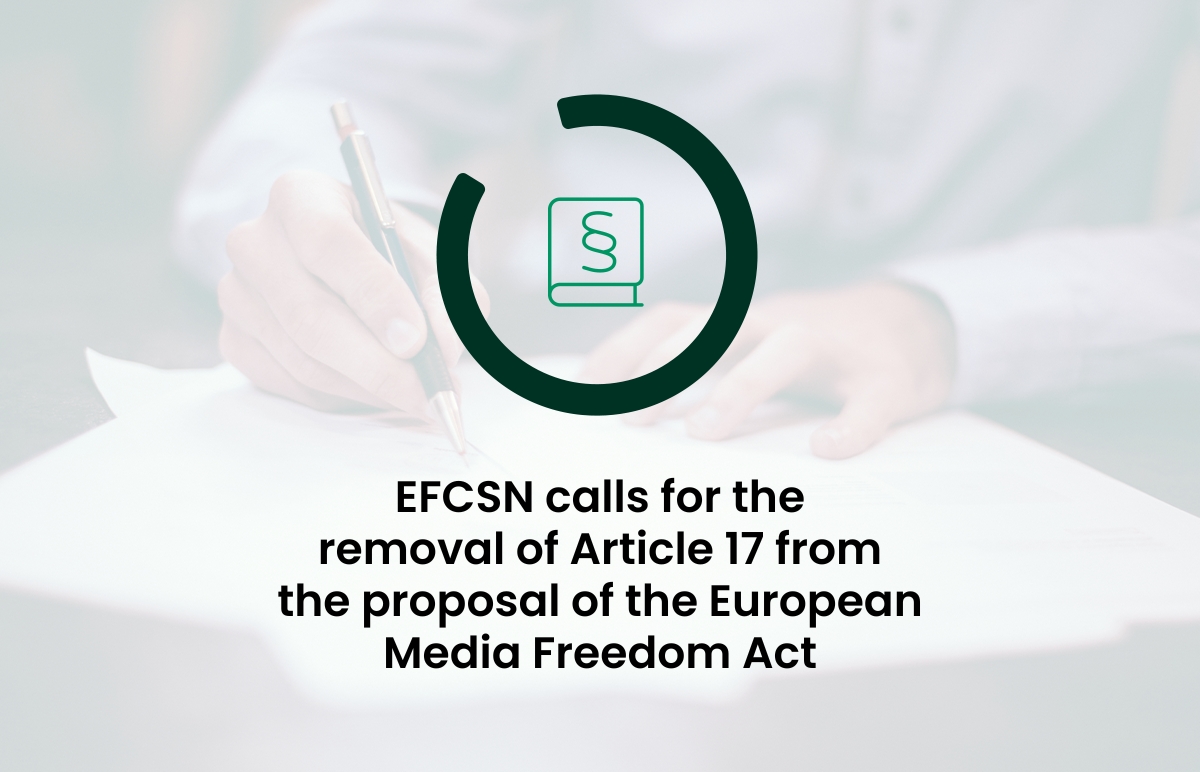
The European Fact-Checking Standards Network (EFCSN), an association launched by more than 40 fact-checking organisations, welcomes most of the proposals contained in the European Commission’s proposal for the Media Freedom Act but demands the removal of Article 17 (“content of media service providers on very large online platforms”) that as written could pose a serious setback for those fighting disinformation.
This article would give content from self-called Media certain privileges in regards to moderation by very large online platforms. The problem is that rogue actors whose sole activity is to produce and disseminate disinformation could and would benefit from those protections too, which are also not very clear. If adopted, years of advances against disinformation could be erased.
For example, on Article 17 the requirements to be considered “Media” for the purpose of enjoying said privileges will not weed out rogue actors if they join a “self-regulatory mechanism […] widely recognised and accepted […] in one or more Member States”. EFCSN considers that most of those mechanisms have no capacity to regularly check if their members actually comply with lofty commitments, and even less to take action if they do not.
On Article 17.2 the privileges themselves are formulated in a confusing way that would give online platforms too much leeway to apply them, and on Article 17.4 the idea of a “meaningful and effective dialogue” between a very large online platform and a Media service provider regarding suspensions and restrictions seem useful, but the focus on finding an “amicable solution” must give way to those solutions being fair, justified, fact-based, consistent… amiability is desirable, but not what these exchanges should be looking for.
Other articles’ recommended changes
We also consider that representatives of the European fact-checking community such as the EFCSN should be included specifically in Article 18 (structured dialogue) as fact-checkers are one of best-suited and experienced actors in monitoring compliance with self-regulatory initiatives dealing with disinformation.
Regarding Article 24 (transparency in state advertising) the EFCSN thinks that a much lower threshold than 1 million inhabitants should be established and even very small local governments should be encouraged to aim for that level of transparency as long as they have advertising budgets. The definition of “advertising” should also be more specific to include all public spending on ads, including all kinds of sponsored content and other non-obvious advertising.
Read the full position paper of the European Fact-Checking Standards Network by clicking on this link.
This project is part of the Call of Integrity of Social Media by the European Commission and is led by six European organisations focused on fighting misinformation: Fundación Maldita.es (Spain), AFP (France), CORRECTIV (Germany), DEMAGOG (Poland), Pagella Politica/Facta (Italy) and EU DisinfoLab (Belgium).
Contact EFCSN for more details: [email protected]
Spokespersons:
- Carlos Hernández-Echevarría: [email protected]
- Tommaso Canetta: [email protected]